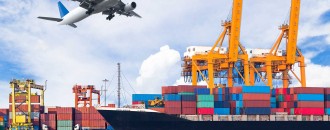.jpg)
Make in India is a misnomer in our industry: Rushabh Shah
Aamir H Kaki
Rushabh Shah is the President of Trade Association of Information Technology (TAIT), which represents the interest of the IT community in the ecosystem of distributors, sub-distributors, resellers, system integrators and service providers. He spoke with The Dollar Business about the IT industry, Make in India, GST and much more.
TDB: Please share the vision and purpose behind TAIT.
Rushabh Shah (RS): We started this association in 1996 and have just completed 20 years. Ours is a dynamic association, therefore our objectives keep changing with time. When it started, there were a lot of problems that our members were facing. There were issues related to excise, taxation etc. So, you can say, it started as a group of affected people coming together under an umbrella called Trade Association of Information Technology (TAIT), with the objective of helping one another. TAIT is one of the oldest associations in India. We help our members to deal with issues related to policies, etc. Presently, it has metamorphosed into an association, that helps its members to do their business in these challenging times.
TDB: How has TAIT encouraged its members to contribute to the ‘Make in India’ initiative?
RS: Actually, there are a few of our members who are already contributing to the ‘Make in India’ initiative by manufacturing their products here. They evolved over a period of time and over the years have set up their own manufacturing units in the country.
In fact, Make in India is a misnomer in our IT industry, because making is more of assembling the pieces. For example, people say they are making mobile phones in India but they are actually just assembling them after importing the parts made in another country.
Make in India will actually happen when we manufacture every part of a mobile or laptop such as the adapter, screen etc, in the country itself. And that requires huge investments to set up such manufacturing units. As we are a group of small and medium enterprisers, we need support from the government with regard to allotment of land at concessional rates, assistance in building infrastructure, speedy approval of projects, etc. Few months back, we met with the team of MIDC (Maharashtra Industrial Development Corporation). They assured us of help regarding land, providing loans at concessional rates, etc. This was a welcome move but, these things take time, they do not happen overnight.
TDB: How has the global slowdown affected your industry? At what rate is the IT industry growing? How do you see the growth in the coming 5 years?
RS: Global slowdown does not have much impact on our industry as we are mainly catering to the requirements of the domestic market. However, it may have a huge effect on the big conglomerates like Infosys, HCL, TCS, etc. Our members, who are SMEs, get orders mainly from government organisations, agencies or local enterprises. Therefore, if anything happens in the global market, it will not affect the growth of our industry.
In the coming 5 years, around 7-10% growth is expected in line with our industry. More and more start-ups are coming, jobs are being created and government is taking initiatives, all this will help the industry to grow.
TDB: Please share how much have your members contributed to exports or are looking to export their products.
RS: We are not an export-oriented association. We are primarily import-oriented and want to grow locally. The government has come up with several programmes in India such as Digital India, Make in India, Skill India, etc, that promote businesses within the country.
There are a lot of things happening at the ground level for sure but none of them is earth shattering. So when you look at the developed market, the kind of finance and quality required to make products compete globally, is a different game altogether. If you see the automobile companies in India, they have reached a level that is at par with international standards. But I cannot say the same thing for IT companies, especially the SMEs. There are no building blocks here at this point of time so export is not even a distant possibility for us.
TDB: Recently, the GST Bill has been passed and it is believed that it will have a major impact on services industry, especially IT & ITeS. What is your take on this?
RS: GST will be the game changer. GST is something for which the whole country is waiting with bated breath and everybody is keeping their fingers crossed to see what would be the initial effect. If you look at the Metros or Tier I cities, most of the businesses have their accounts streamlined, especially in the IT fraternity. But there are still small and traditional businesses that maintain their accounts manually and do not even have computerized transactions.
From the understanding which we got after discussing with experts, initially, there will be hiccups and worry because the staff of these companies needs to be retrained. Earlier we used to give goods on challan. All these things need to be very tightly implemented in GST. So we need to be careful because in the traditional system of VAT when a bill or voucher is prepared, it comes into transaction only after the goods are sold. However, in GST, it comes into transaction after the material has moved. This is one thing which people have to take into account and be careful. The other thing is that the returns have to be carefully monitored because it is difficult to file tax returns. But if the people are aware and organised then there is no room to worry.
TDB: TAIT has recently organised the 9th edition of COM-IT Expo - an International Exhibition. How much was the international participation? What were the investment opportunities for international players?
RS: The major participation at the event was from TAITRA (Taiwan External Trade Development Council). 25% of participation was by the Taiwanese companies. Apart from this, there were companies from China, Australia but the Taiwanese showcased their products at the exhibition.
Very few companies came to invest because their main focus was to expand their market and look for channel partners in India. Investment was not a priority for them. They were here to discover new markets.





 to success.
to success.